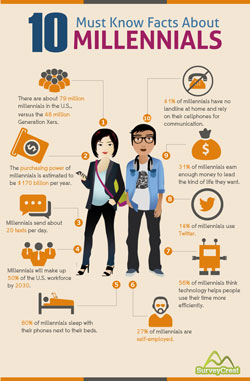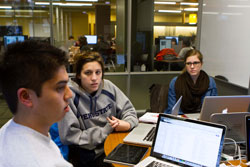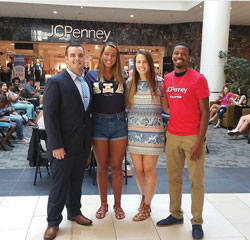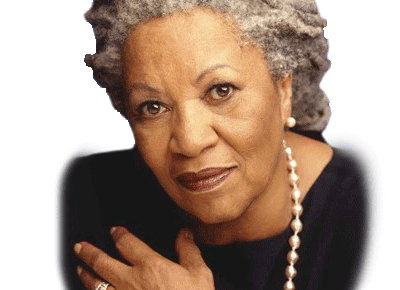Our generation is about to change everything. We have adapted to endless new technologies, progressive reforms, and new ways of thinking. We are the largest generation in U.S. history; with about 80 million millennials, our numbers are surpassing those of the Baby Boom. As we leave college behind, how are we going to leave our mark on society?
Unlike Generation X and the Baby Boomers, we have countless ways to share our opinions with the world. You don’t have to write up a letter to your town paper to have your voice heard.
Thanks to Twitter, Facebook, Tumblr, Snapchat, and a number of free forums online, it’s easy for millennials to express their beliefs, especially during monumental social events or tragedies.
When riots broke out in Ferguson, MO and the Black Lives Matter campaign took off, we were able to contribute with a hashtag. “Social media gave us a platform to express how passionate we were about these controversial issues,” Samantha Marella, a junior business marketing student, explained.
With the presidential elections looming ahead, we’re using our voices more than ever on social media to debate over candidates.
“Many millennials are using social media to spread awareness of social injustices and important political issues,” Robert Scott, a Specialist Professor in the Communication Department, said. “And doing so in an immediate fashion often leads to mobilization and positive change.”
Twitter especially provides us a way to join in on a global conversation, using topics like #OscarsSoWhite or #SmartGirlsAsk.
“Millennials are going to change the way society accepts individuals, since movements like Black Lives Matter and the transgender movement have been widely accepted by people in our generation,” Danielle Romanowski, a junior communication student, pointed out. “As we get older, we’ll pass those beliefs down to our children and family members.”
Our generation is also the first to wait until careers are settled before marrying – the median age for marriage was 30 in 2010 as opposed to 23 in the 1970s.
The technological advancements and progressive thinking are only going to continue as we go out into the job force and end up having families.
“Millennials are now entering the workforce as the first generation to be raised with electronic communication, mobile apps, and social media platforms,” Professor Scott pointed out. “Many young people can market themselves as uniquely qualified to steer today’s companies through the often complex process of developing and maintaining an effective online and social presence.”
Although, just because we post pictures on Instagram on “Throwback Thursday” doesn’t mean we’re experts; Scott explained that “a job candidate should fully understand the implications of social media on marketing, customer service, and much more.”
Besides making progressive changes, as well as putting more of a focus on our careers, we are also on the precipice of creating more changes to technology. New apps are popping up every day, with transportation options like Uber and Lyft taking off.
“From a technological standpoint I think that we’ll be able to contribute more to the advancement of technology in our society since we’re the ones that grew up with it,” Stephanie Merlis, a junior business marketing student, added. We don’t spend time trying to fix an older app or bother using Internet Explorer; we’re off designing new options, always on to something faster, sleeker, better.
We take this desire for the best technology and seamless processes to the workforce as well. Millennials have experienced everything from gay rights, the transgender movement, a new wave of the feminist movement, and the continuing fight for equal rights for all races and ethnicities. “We’re a more liberal generation, so we’ll be open to new ideas,” Merlis said.
We bring this open-minded attitude into the workforce as well. Forty percent of millennials have at least one tattoo, leading towards an overall acceptance of things like tattoos and nose piercings when it comes to the office.
Marella added, “We’re going to be a lot more understanding of people who have tattoos or look different than the normal corporate worker, because we’re less judgmental.”
This acceptance may stem from students being raised as part of a “trophy” generation. We were taught since tee-ball that everyone is a winner, even if we lose. Everyone gets a participation trophy and plenty of orange slices and pats on the back. While many criticize this as raising a generation of softies who don’t try very hard, it does lead to us acknowledging others for the effort they put into something, even if the effort was minimal.
“I think that our generation is definitely a lot more understanding and caring than the generation before, since we were raised in the ‘trophy age’,” Marella explained. “Although the older generations don’t understand that, I think it was a necessary progression in humanity.”
Professor Scott recalls, “I’ve seen a number of my students work tirelessly to make the world a better place by pursuing careers and internships in news media, political organizations and nonprofits.”
The world is changing now, more rapidly than ever before. Our generation will continue to ride that wave, and bring even more changes, updates, and progression than any group of people before, with open hearts and open minds.
IMAGE TAKEN from surveycrest.com




